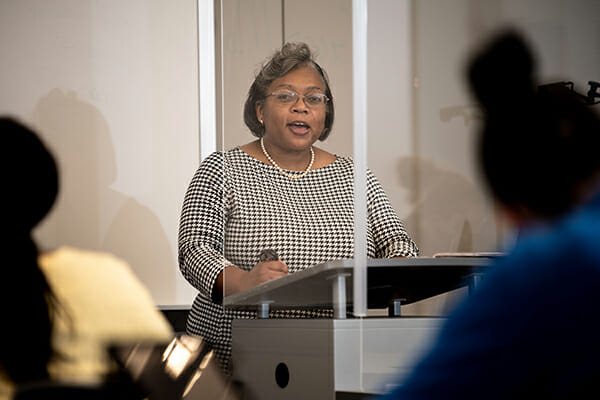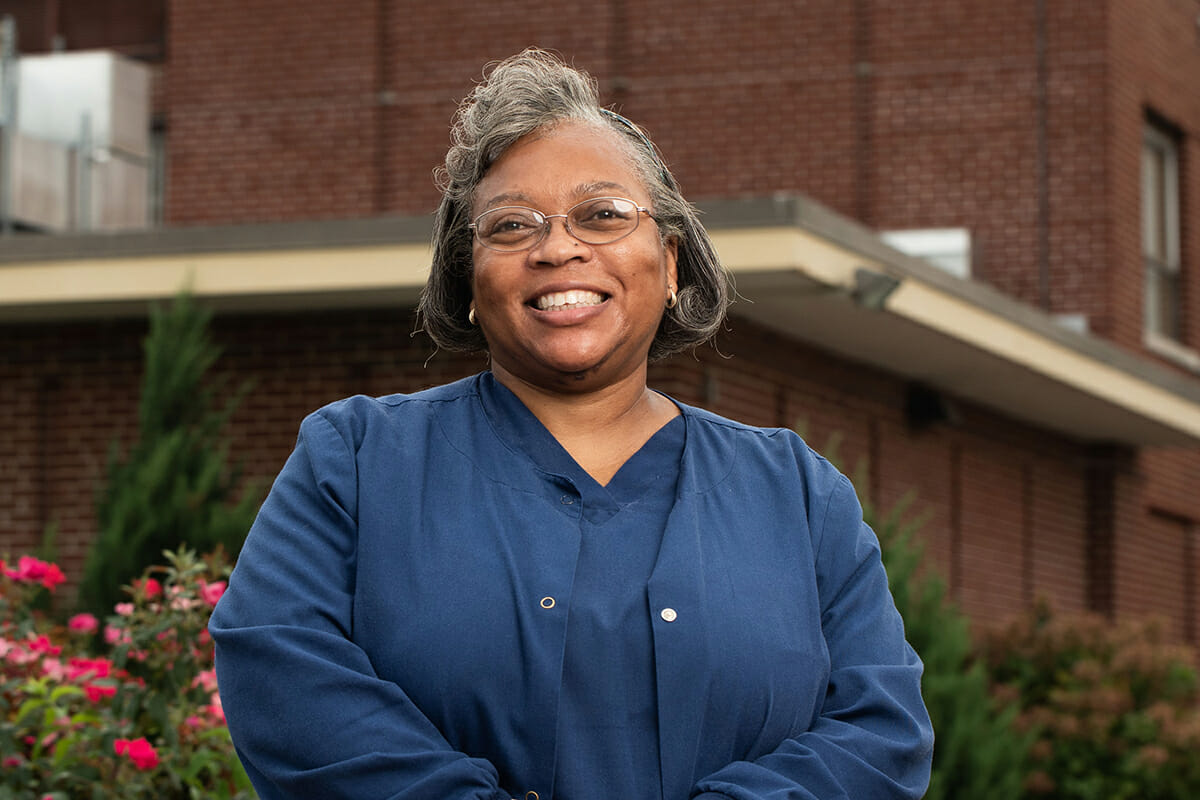As the first COVID-19 patients started showing up in St. Louis emergency rooms, Maryville announced that all on-campus classes would transition to a virtual learning format. Many students in the Catherine McAuley School of Nursing, who serve as health care workers in hospitals and nursing homes, began facing a frightening new normal. The following months would be filled with working extra-long shifts providing care for those suffering from COVID-19, while juggling school and family.
These students were prepared to pivot during the pandemic because of lessons learned from faculty like LaDonna Whitten, RN, PhD, professor of nursing. Whitten has worked as an emergency department nurse at Touchette Regional Hospital for 23 years. The facility is the closest hospital for residents in East St. Louis, Illinois, an underserved community where many suffer from chronic illnesses, substance abuse and high rates of violent crime.
“I’ve treated many patients from low-income households who come to the emergency department because they have no other place to go,” Whitten said. “Many Maryville students first learn about how to work with this vulnerable population during my class. I do a lot of storytelling about my patients and the trends I see.”
Recently, this storytelling has touched on Whitten’s own experiences working with a community affected disproportionately by the pandemic. Long-standing systemic health and social inequities have put many people from racial and ethnic minority groups at increased risk of getting sick and dying from COVID-19. Data from the Centers for Disease Control shows that Black and Latino people are especially being harmed by the virus at higher rates across the country, and across all age groups.
 Whitten invites her students to share their stories, too, including their experiences working on the front lines. “That’s when they light up the most,” she said. “Many students shared how they were asked to take on extra responsibility at work amidst the pandemic. It’s fantastic to hear they were able to step up because of their Maryville education.”
Whitten invites her students to share their stories, too, including their experiences working on the front lines. “That’s when they light up the most,” she said. “Many students shared how they were asked to take on extra responsibility at work amidst the pandemic. It’s fantastic to hear they were able to step up because of their Maryville education.”
Whitten also helped students manage their coursework during the transition to virtual learning. In lieu of in-person clinical rotations, Whitten integrated online virtual simulations and expanded activities like case studies and concept maps to assess students’ clinical skills. She met with students one-on-one, like a clinical preceptor, to allow them to reflect on their studies and ask questions.
“I reminded students that some things they are going to encounter aren’t learned from a textbook,” Whitten said. “I want to ensure students know how to treat patients from all walks of life without being judgmental. Some patients are not literate or lack financial resources. It’s up to us as health care workers to ensure they have access to the best care possible, even after the pandemic ends.”
In honor of her achievements, Whitten received the 2020 President’s Award for Strategic Leadership in Diversity and Inclusion. She serves on several University committees promoting diversity in addition to her work around diversity and inclusion that takes place in the classroom.
